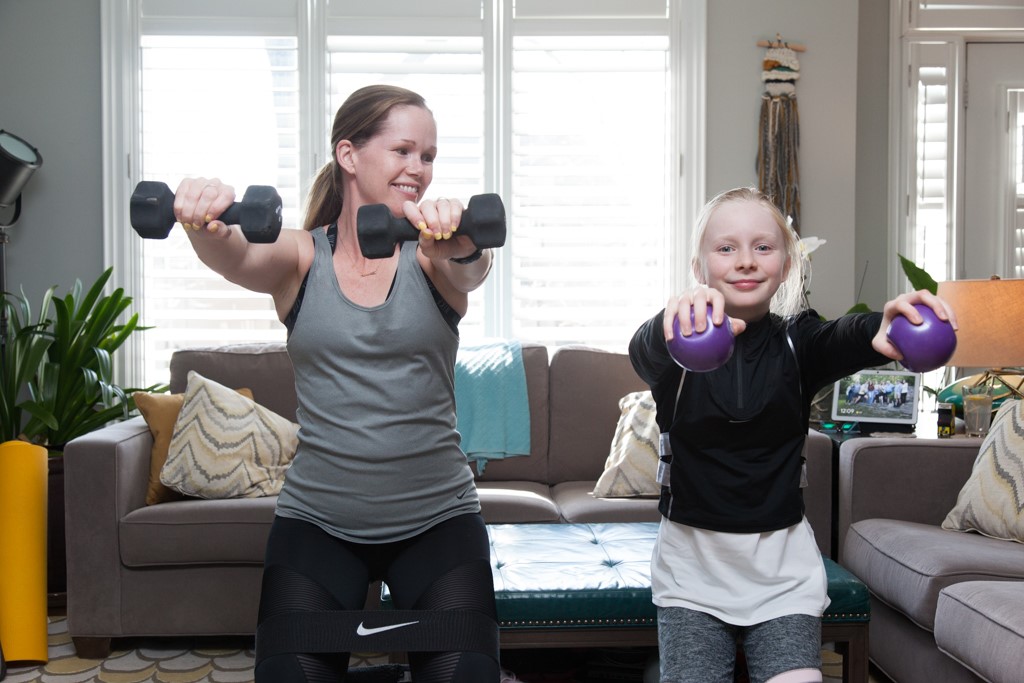When the new coronavirus outbreak hit Canada, Libby Roach and her husband considered relocating to their cottage on Crystal Lake, near Fenelon Falls, Ont.

One of the reasons staying at the cottage appealed to the couple was isolation — hypothetically, it would be an easy place to practice social distancing.
“We only have one neighbour and he’s a good distance away,” Roach said.
READ MORE: Officials say avoid cottage country to limit resource strain during COVID-19 outbreak
However, Roach knew they would have to travel into town for supplies on a regular basis, ultimately defeating the purpose of going to the cottage in the first place.
“We knew that, while we likely won’t see or come close to another person at the cottage, we will have to get gas, food and other necessities,” she said.
While it may be tempting to leave urban centres for more isolated places outside the city, health officials and politicians warn this can place significant strain on cottage country’s healthcare systems and essential resources.
On March 27, Ontario Premier Doug Ford asked residents in urban areas to avoid cottages and rural properties. He said rural areas may have more difficulty replenishing essential items if there is an added demand.
“Also the hospitals – they don’t have the capacity we do in urban settings. And as they all say, ‘We’re going to welcome you with open arms when we get through this,’ but right now it’s putting a lot of strain on their system out there,” Ford said.
Dr. Theresa Tam, Canada’s chief public health officer, also advised against non-essential travel to rural towns.

Get breaking National news
READ MORE: Ontario cottage country deals with influx of residents amid COVID-19 pandemic
“Urban dwellers/cottagers should resist the urge to head to the cottage and rural properties as these communities have less capacity to manage COVID-19,” Tam said on Twitter.
“COVID-19 is not cottage time.”
Rural health-care providers and local politicians across the country have echoed these concerns.
“The long-term concern will always be around hospital capacity and health-care capacity,” Bracebridge, Ont. mayor Graydon Smith previously told Global News.
Such towns are accustomed to increasing resources during the summer months, when populations rise, but this typically doesn’t happen until May.
READ MORE: Quarantine that stress: Limit screen time during coronavirus outbreak, experts say
“Here we are with facilities that cope reasonably well with 3,500 (people) suddenly facing a situation which, if it goes the way that the rest of the countries in the world seem to be going, could suddenly see us with a hopelessly inadequate supply of physicians, facilities, materials,” Dr. George Harpur, a family physician with a practice in Tobermory, Ont., previously told Global News.

Similar concerns exist in other popular cottage destinations across the country, such as the Sunshine Coast in British Columbia and the Laurentians in Quebec.
“We know some people who have second homes here are in residence or are traveling back and forth between their two homes. We also still have visitors coming to the Sunshine Coast,” said Darnelda Siegers, mayor of the District of Sechelt, B.C., in an email to Global News.
“People should explore British Columbia… later.”
Seigers worries the additional population will tax the district’s limited resources — at the hospital, but also at the grocery stores and other essential services.
“We ask that people stay at their primary residence and not travel here at this time,” she said. “We are actively working to put plans in place to welcome you when the time is right.”

Since Ford’s announcement, Roach says her family has decided not to go to the cottage “for the foreseeable future.”
Roach and her husband are grateful to live with their two daughters and their dog in a 2,000 square-foot home during this time of self-isolation.
“We feel incredibly lucky to have a few floors to spread out on, a backyard to play in and a dedicated office space for both of us,” Roach said.
“Dr. Tam is doing a terrific job and we will follow her recommendations and adhere to her policies to minimize the impact of COVID-19.”
Questions about COVID-19? Here are some things you need to know:
Health officials caution against all international travel. Returning travellers are legally obligated to self-isolate for 14 days, beginning March 26, in case they develop symptoms and to prevent spreading the virus to others. Some provinces and territories have also implemented additional recommendations or enforcement measures to ensure those returning to the area self-isolate.
Symptoms can include fever, cough and difficulty breathing — very similar to a cold or flu. Some people can develop a more severe illness. People most at risk of this include older adults and people with severe chronic medical conditions like heart, lung or kidney disease. If you develop symptoms, contact public health authorities.
To prevent the virus from spreading, experts recommend frequent handwashing and coughing into your sleeve. They also recommend minimizing contact with others, staying home as much as possible and maintaining a distance of two metres from other people if you go out.
— With files from Global News’ Ryan Rocca, Daina Goldfinger & The Canadian Press
Meghan.Collie@globalnews.ca










Comments
Want to discuss? Please read our Commenting Policy first.